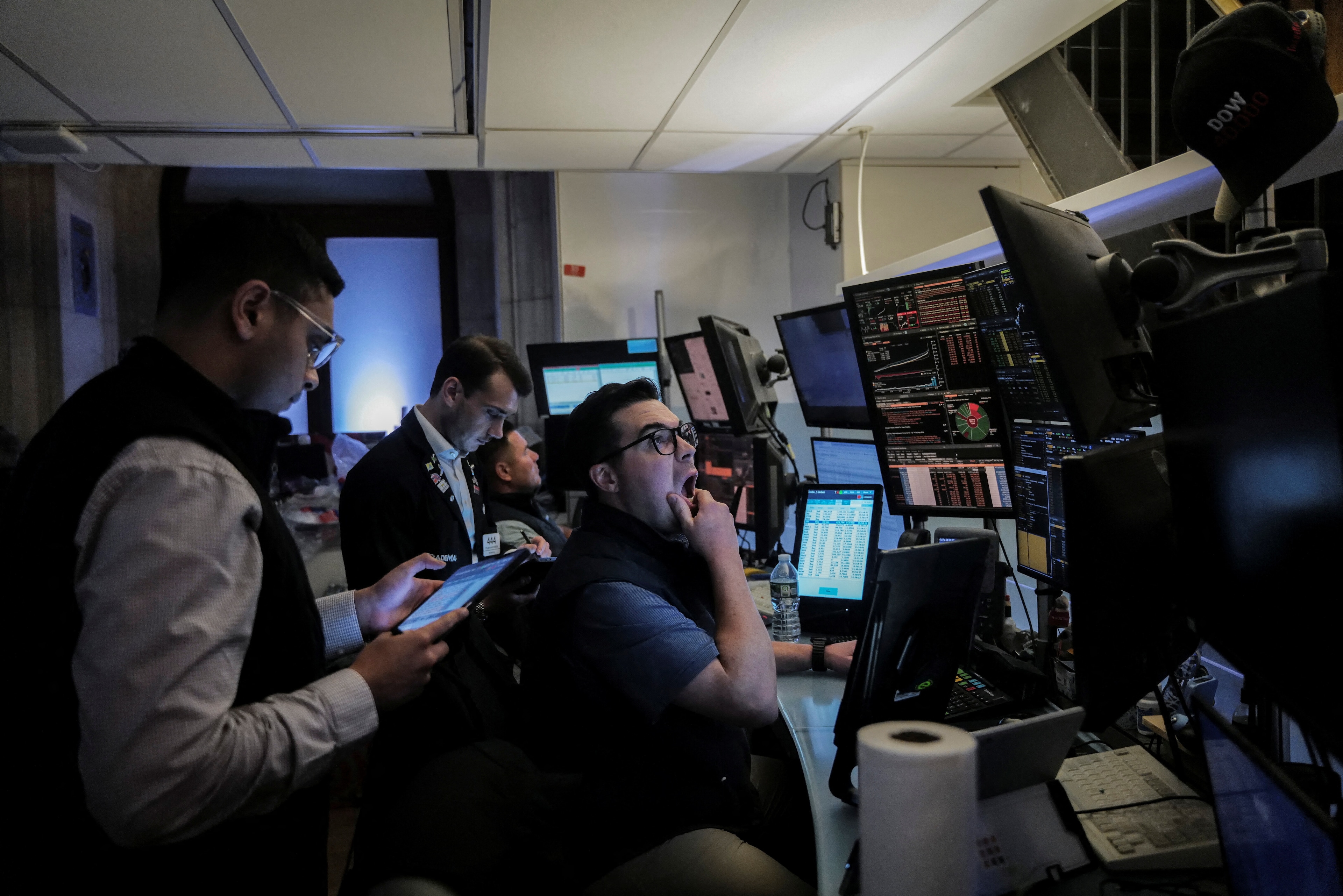A CEO's take on the living wage

The principle of a living wage is not new. It is as old as the International Labour Organisation (ILO) itself.
Image: REUTERS/Jose Luis Gonzalez
Stay up to date:
Fairer Economies
- With COVID-19 widening inequality around the world, it's vital business and governments start addressing the living wage, writes John Morrison, Chief Executive, IHRB.
- The concept of a living wage is not new, but the level at which it is set is highly context-driven, with no binding piece of international law.
- A growing number of companies have made a commitment to a living wage within their own workplaces.
- Unilever has announced it will extend this to its global value chain by 2030.
At the recently-concluded World Economic Forum Davos Agenda 2021 meetings, leaders repeatedly stressed that social and environmental capital are integral parts of whatever new form of capitalism emerges to meet our existential challenges.
Companies often say that “workers are their biggest asset”. If that is truly the case, then treating workers in global supply chains fairly and with respect - including on issues of compensation - must be the first step in any meaningful approach. The Universal Declaration of Human Rights (1948) is clear:
“Everyone who works has the right to just and favourable remuneration ensuring for himself/herself/themself and his/her/their family an existence worthy of human dignity, and supplemented, if necessary, by other means of social protection.”
At a time when trust in governments is at an all-time low and economic inequality has widened in many parts of the world, governments and businesses need to reconsider their approach to living wage.
”The principle of a “living wage” is not new. It is as old as the International Labour Organisation (ILO) itself, reflected in its 1919 Constitution and touched upon in many UN labour and human rights standards that have come since.
The level at which the living wage is set is highly context-driven, both in space and time, rates varying between nations and even within countries. There is no single definition of living wage, but it is generally understood to mean a wage rate that provides households with a minimum acceptable standard of living, including essentials such as water, food, housing, education, healthcare, clothing and transport.
Making it a reality has proved much more difficult.
There is no specific convention or binding piece of international law on the living wage. Whilst forced labour has its own 1930 Convention and the unanimously ratified 2014 Protocol, living wage has never had such alignment. To be sure, even the forced labour convention is invoked less often when the countries involved are large and powerful.
The prevailing view in economic orthodoxy is that markets should determine wages, depending on the demand and supply of labour, and to many neo-liberals and libertarians wages are best determined by market forces. For many businesses and governments in developing economies, low wages have been part of their competitive advantage. But at a time when trust in governments is at an all-time low and economic inequality has widened in many parts of the world, including advanced economies, governments and businesses need to reconsider their approach to living wage.
Corporate commitments to living wage are growing
A growing number of companies have made a commitment to a living wage within their own workplaces (for example in the UK), but far fewer have extended this to their global supply chains.
Unilever’s announcement last week – that it will integrate living wage commitments beyond its own workforce to include at least the first tier of its global value chain by 2030 – is a welcome move. Unilever is not the first company to make such a commitment, but as media reports have noted, it is a plan that has the potential, given Unilever's enormous size and global reach, to change the lives of millions of people.” With 60,000 direct suppliers across a diverse range of consumer goods, Unilever’s commitment to securing a decent wage will hopefully have a ripple effect. As it is the suppliers themselves that will have to pay this wage, the two billion Euros a year support to businesses owned and managed by underrepresented groups is particularly welcome.
A handful of other international companies have also been extending their living wage commitments to their supply chain, including Adidas, H&M, Ikea and Astra Zeneca. The Adidas position on “fair compensation” is particularly interesting as it shows how a living wage intersects with many other workplace issues: legal minimum wage, decent living standards, a worker’s performance and skills, reward overtime, price increases, an employer’s profits and sales, and changes in work technology.
Trade unions see the living wage as a dynamic concept and one in which workers’ agency is critical.
”Trade unions also see the living wage as a dynamic concept and one in which workers’ agency is critical. For example, the Action, Collaboration, Transformation initiative (ACT) brings together international brands, retailers, manufacturers and unions to address living wage in the textile and garment supply chain – placing collective bargaining and freedom of association at its centre. In other words, living wage is not a privilege granted to workers; rather, it is enabled by workers, as a matter of enjoying their workplace rights (as set out in the ILO Core Conventions). Initiated by the IndustriALL Global Union, the membership of the ACT initiative, currently comprising mainly European companies, continues to grow.
Despite that, much remains to be done.
As 2019 data from the Corporate Human Rights Benchmark shows, only 10% of the world’s largest companies in sectors such as agriculture, extractives, apparel, or ICT, have living wage commitments in either their own operations or supply chain. The percentage is even lower in the automotive sector, General Motors being the only company amongst the 30 analysed to have a living wage policy at all.
And yet, there are a number of reasons why we might see progress in future.
Government action is also advancing
The Dutch and German Governments have been the most proactive within Europe, and now that the European Commission is actively considering mandatory human rights and environmental due diligence for companies. It is yet to be determined how many non-European businesses, selling into the European market, might be covered by such legislation / regulation, but it is likely to require companies to “know” the wages being paid in their supply chains. And in an environment where investors are increasingly asking companies questions about their ESG commitments and performance, boards will increasingly need to explain why poverty wages in global supply chains are permissible.
In an environment where investors are increasingly asking companies questions about their ESG commitments and performance, boards will increasingly need to explain why poverty wages in global supply chains are permissible.
”But the living wage can no longer remain a niche European preoccupation.
Most governments have tended to focus on the national minimum wage structures and not yet on the complexities of setting local living wages. This is a question for the new Biden Administration in the United States (which is moving towards a federal minimum wage of $15/hour) as well as the Narendra Modi administration in India. It is encouraging that more and more states and cities across the United States now have wage statutes.
Larry Fink, the chief executive of Blackrock, the investment corporation, recently challenged companies to make the transition to a net-zero economy. But such a transition cannot be subsidised through supply chain poverty. Achieving a “just” energy transition, of moving to a low carbon economy while protecting the rights and interests of communities and workers who are affected by the transition, can leave no one behind.
The UN Sustainable Development Goals address decent work (SDG8), and a living wage is a key driver for gender equality (SDG5), reduced inequalities (SDG10), reducing poverty and hunger (SDG 1 and 2), and enabling better health (SDG3) and education (SDG4). The World Benchmarking Alliance has included living wage in supply chains as a core indicator for all 2,000 companies in its basket of indices – this will help bring many more companies under scrutiny and is useful for investors evaluating companies.
Whilst complex, discussions about how the living wage is applied in practice are here to stay. There is reason to believe that during 2021 more governments, investors, finance organisations, and companies will respond further to the demands of trade unions and civil society to make this a permanent part of how business is done.
It will be for those who don’t believe that workers deserve a living wage to explain why the status quo should be maintained, as levels of national inequality and social division continue to rise.
Accept our marketing cookies to access this content.
These cookies are currently disabled in your browser.
Don't miss any update on this topic
Create a free account and access your personalized content collection with our latest publications and analyses.
License and Republishing
World Economic Forum articles may be republished in accordance with the Creative Commons Attribution-NonCommercial-NoDerivatives 4.0 International Public License, and in accordance with our Terms of Use.
The views expressed in this article are those of the author alone and not the World Economic Forum.
Forum Stories newsletter
Bringing you weekly curated insights and analysis on the global issues that matter.
More on Economic GrowthSee all
Atul Kumar
August 12, 2025
Elizabeth Henderson and Daniel Murphy
August 8, 2025
Li Dongsheng
July 31, 2025
Charlotte Edmond
July 30, 2025
Naoko Tochibayashi
July 30, 2025
Matt Watters
July 29, 2025





